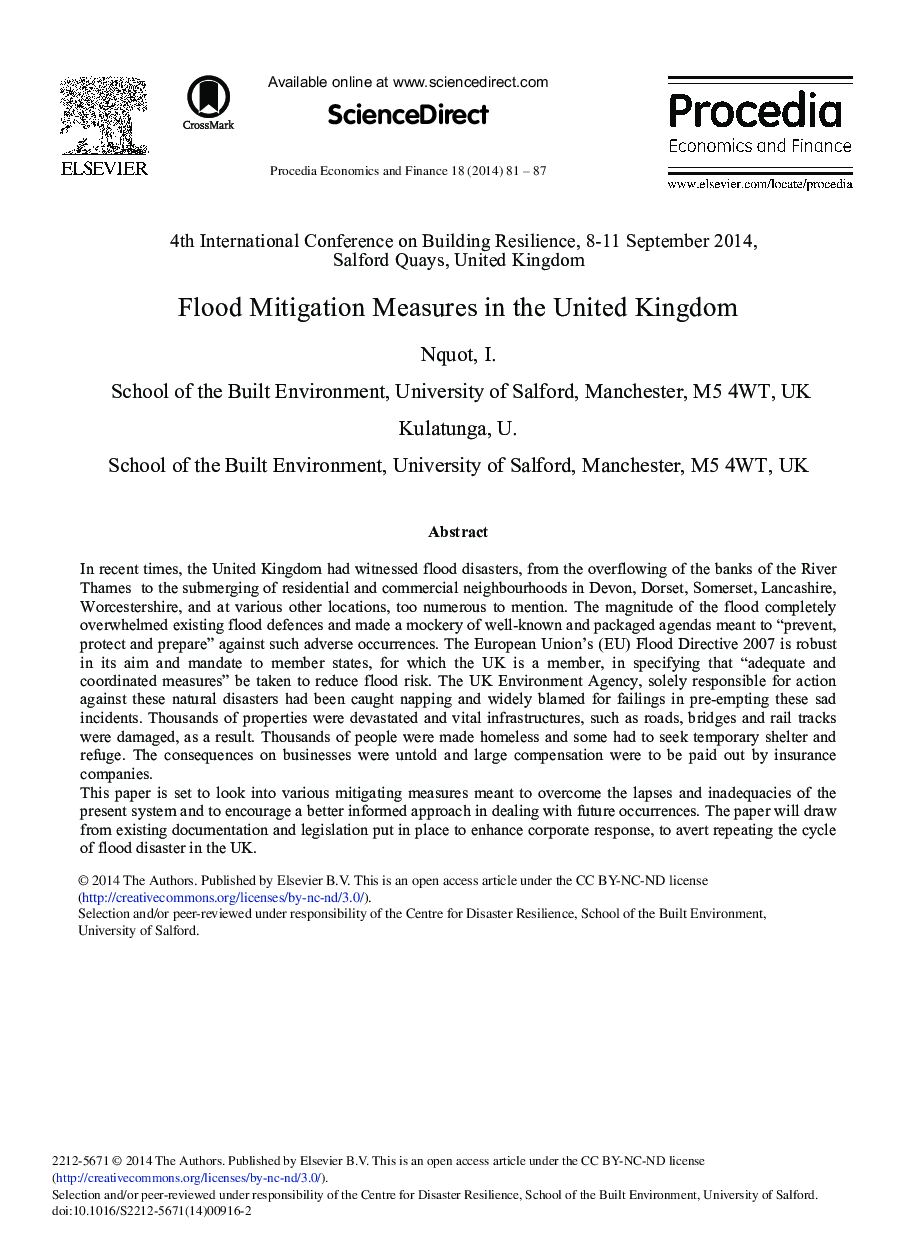| Article ID | Journal | Published Year | Pages | File Type |
|---|---|---|---|---|
| 981480 | Procedia Economics and Finance | 2014 | 7 Pages |
In recent times, the United Kingdom had witnessed flood disasters, from the overflowing of the banks of the River Thames to the submerging of residential and commercial neighbourhoods in Devon, Dorset, Somerset, Lancashire, Worcestershire, and at various other locations, too numerous to mention. The magnitude of the flood completely overwhelmed existing flood defences and made a mockery of well-known and packaged agendas meant to “prevent, protect and prepare” against such adverse occurrences. The European Union's (EU) Flood Directive 2007 is robust in its aim and mandate to member states, for which the UK is a member, in specifying that “adequate and coordinated measures” be taken to reduce flood risk. The UK Environment Agency, solely responsible for action against these natural disasters had been caught napping and widely blamed for failings in pre-empting these sad incidents. Thousands of properties were devastated and vital infrastructures, such as roads, bridges and rail tracks were damaged, as a result. Thousands of people were made homeless and some had to seek temporary shelter and refuge. The consequences on businesses were untold and large compensation were to be paid out by insurance companies.This paper is set to look into various mitigating measures meant to overcome the lapses and inadequacies of the present system and to encourage a better informed approach in dealing with future occurrences. The paper will draw from existing documentation and legislation put in place to enhance corporate response, to avert repeating the cycle of flood disaster in the UK.
